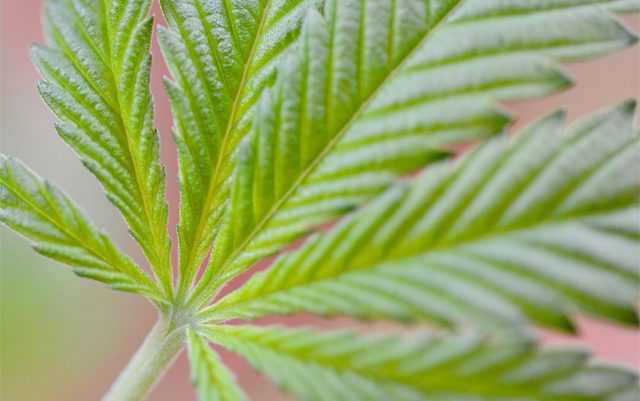After decades of fighting to end the War on Drugs, the United States Congress is finally taking their first real step in the direction of cannabis policy reform. While there have been protections put in place for states where the plant is legal, there has yet to be a move toward ending the federal prohibition of cannabis – until now. This week, the House Judiciary Committee will consider legislation that would remove cannabis from the federal list of controlled substances and address many of the hardships that have come as a result of its criminalization.
The legislation, HR 3884, also known as the Marijuana Opportunity, Reinvestment and Expungement (MORE) Act, is going to be reviewed by the committee on Wednesday, November 20th, and a vote the same day is very possible. It was introduced by House Judiciary Committee Chairman Jerrold Nadler and now has 55 cosponsors, only one of which is a Republican.
“Our marijuana laws disproportionately harm individuals and communities of color, leading to convictions that damage job prospects, access to housing, and the ability to vote,” Nadler said in a press release.
Not only is this the first time that a piece of legislation to legalize cannabis is being taken seriously, it will also be the first time such legislation will be put to a vote. The MORE Act would also do a great deal to reverse the negative impacts of prohibition compared to other legalization bills that have been introduced in the past.
But, there are many that believe the far-reaching legislation will fall flat – especially considering that more conservative options that have focused on states’ rights could have been passed and did not.
“Recognizing this, many states have legalized marijuana. It’s now time for us to remove the criminal prohibitions against marijuana at the federal level. That’s why I introduced the MORE Act, legislation which would assist communities disproportionately impacted by the enforcement of these laws.”
The bill would not only remove marijuana from the Controlled Substances Act, but it would also provide a variety of programs to help those who have been affected the most. This would include job training and legal aid for those who were affected by the enforcement of prohibition, as well as loans for small businesses in the cannabis industry that are owned and controlled by socially and economically disadvantaged individuals. It would also lower the barriers to licensing and employment in the newly legal industry.
To top it all off, the MORE Act would also provide resentencing and even expungement for people with criminal records relating to cannabis – whether they are currently incarcerated or have prior convictions. It would also shield immigrants from being denied citizenship for reasons pertaining to cannabis.
Overall, the legislation looks to provide a major overhaul of federal laws pertaining to cannabis. It would certainly change the landscape for the many industry-related problems that come from state and federal law conflict. But, it also aims to help those who have been harmed by prohibition. Though it might not make it past the first votes – and there is plenty of time for this bill to be amended and revised – it is a huge step forward for the U.S. government, who hasn’t budged on cannabis policy over the years, regardless of the many individual states doing so anyway.







“Though it might not make it past the first votes – and there is plenty of time for this bill to be amended and revised – it is a huge step forward for the U.S. government, who hasn’t budged on cannabis policy over the years, regardless of the many individual states doing so anyway.”
That is a great statement. If the MORE Act passes, then cannabis with less that 0.3% THC would be called hemp, for whatever perceived value that bestows, cannabis with over 0.3% THC would just be cannabis, and marijuana would be federally legal even though its definition remains malformed.
However, by also reconstructing the malformed federal definition of marijuana in the necessary and proper way to uphold the Constitution, the rights, privileges, and immunities of citizens to grow and carefully use cannabis will be protected as the 2nd, 9th, 10th, and 14th Amendments originally intended, and marijuana will have an altogether accurate federal definition.
Let’s contact our members of Congress about amending the MORE Act to reconstruct that definition in this straightforward way that informs state and local controls for marijuana itself:
The term “marijuana” means all parts of the smoke produced by the combustion of the plant Cannabis sativa L., which is, as are the viable seeds of such plant, prohibited to be grown by or sold by any publicly traded corporation or subsidiary company, and such smoke is prohibited to be inhaled by any child or by any person bearing any firearm, as is their intake of any part or any product of such plant containing more than 0.3% THC by weight unless prescribed to such child by an authorized medical practitioner.